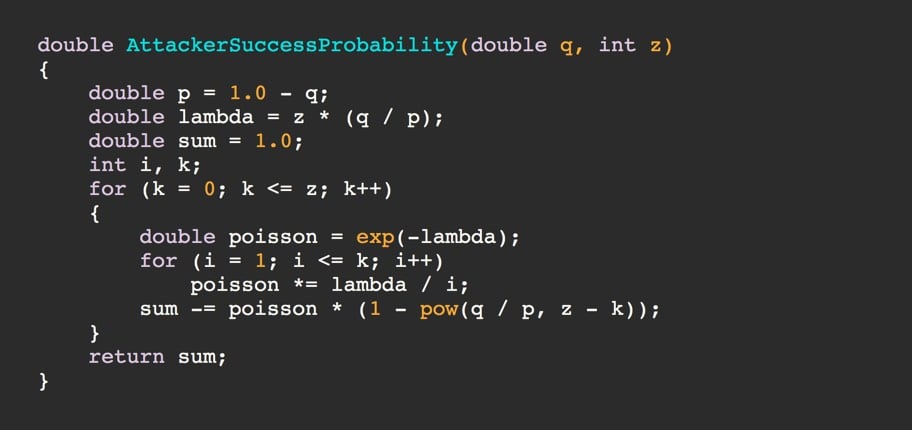The Most Important Pieces of Code in the History of Computing

Slate recently asked a bunch of developers, journalists, computer scientists, and historians what they thought the most influential and consequential pieces of computer code were. They came up with a list of the 36 world-changing pieces of code, including the code responsible for the 1202 alarm thrown by the Apollo Guidance Computer during the first Moon landing, the HTML hyperlink, PageRank, the guidance system for the Roomba, and Bitcoin (above).
Here’s the entry for the three lines of code that helps cellular networks schedule and route calls efficiently and equitably:
At any given moment in a given area, there are often many more cellphones than there are base station towers. Unmediated, all of these transmissions would interfere with one another and prevent information from being received reliably. So the towers have a prioritization problem to solve: making sure all users can complete their calls, while taking into account the fact that users in noisier places need to be given more resources to receive the same quality of service. The solution? A compromise between the needs of individual users and the overall performance of the entire network. Proportional fair scheduling ensures all users have at least a minimal level of service while maximizing total network throughput. This is done by giving lower priority to users that are anticipated to require more resources. Just three lines of code that make all 3G and 4G cellular networks around the world work.





Stay Connected